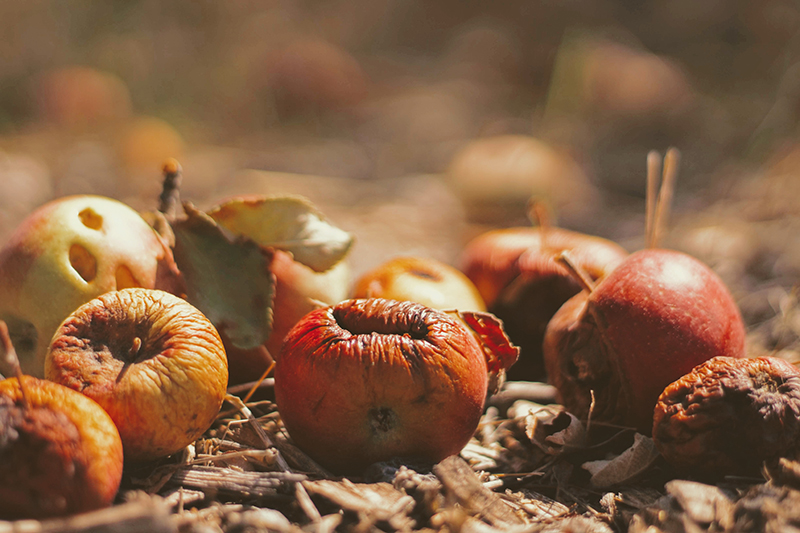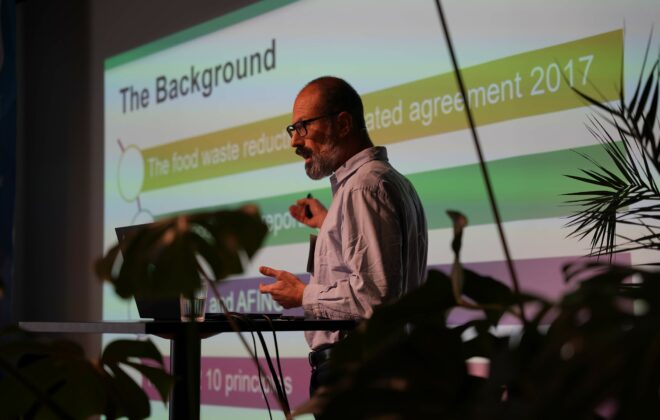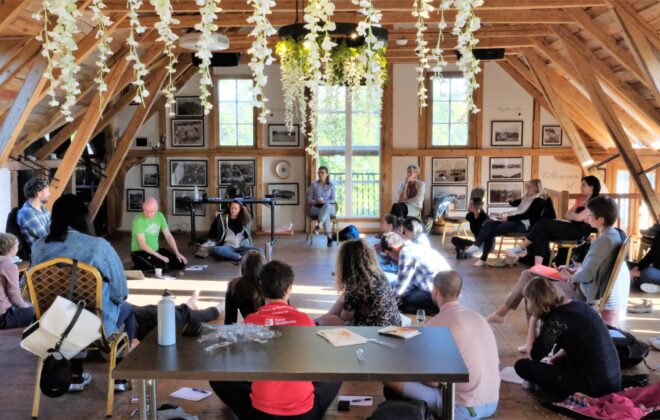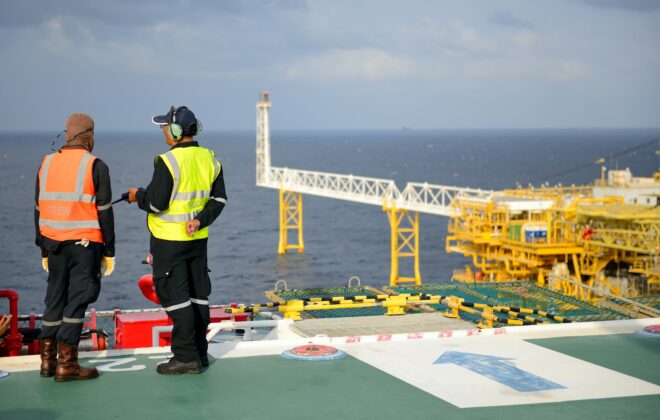Will the European Green Deal push for more food waste reductions?
Recent months brought important, forward-looking sustainability strategies for the European Union. Both the European Green Deal and the Farm-to-Fork strategy identify food waste as a significant problem to deal with. Why is it important and how is it addressed on the EU agenda?
An often overlooked challenge
Dramatic deforestation is often visualized with the world losing a certain number of football fields of rainforests every minute. Such pictures make it easier to grasp the scale of the problem. Food waste lacks such a single, juicy metaphor, but its scale and impacts are also very severe. It is estimated that, globally, around 1/3 of food produced for human consumption is not eaten by humans. The Food and Agriculture Organization (FAO) of the UN estimates that the annual global waste of food is 1.3 billion tons. Some 28 percent of the world’s agricultural area, that’s 1.4 billion hectares of land, is used annually to produce food that is lost or wasted. You can compare global food waste to a country with the world’s 3rd highest emissions of greenhouse gases. Imagine millions of unopened shopping bags full of goods that land directly in trashcans!
Many scholars point out that managing food waste has been “painfully slow” and it is high time that the food waste problem starts climbing on the political agendas. In the EU, food waste in the whole lifecycle accounts for at least 227 million tons of CO2e annually, constituting about 6% of total EU emissions in 2012. In comparison, EU’s emissions from aviation account for about 3 %.
In recent years, we could clearly observe a growing attention to the food waste problem coming from civil society campaigns, Corporate Social Responsibility (CSR) programs in businesses and pushes from public authorities. But what happened in the last months at the EU level can hopefully bring more tools and commitments to efficiently reduce food waste.
Finally under the spotlight?
Already eleven days after taking office in December 2019, the new European Commission led by Ursula von der Leyen presented a broad, new growth strategy: The European Green Deal. The strategy is a roadmap for designing sustainable, transformative policies. The biggest promise of the new vision is streamlining disparate, sectoral, sustainability policies and building synergies that could move “policy silos” to more integrated approaches. Ideally, this would mean moving from mere, green “window dressing” to a true, mainstreaming of sustainability considerations across all areas of EU public policy.
This can be good news for food waste reduction, as the issue seems to be high on the new green agenda. The European Green Deal document of 24 pages mentions food waste directly twice. Once in the context of the circular economy and reducing environmental impact of the food processing and retail sectors; a second time when referring to the consumers and the fact that they should be helped to choose healthy and sustainable diets and reduce food waste. This could be an indicator for a relatively holistic picture of the food waste problem with shared responsibility and important linkages to other sectors.
The initial vision was well received, but immediately seen as extremely ambitious, at least on paper. This became even more of an issue as the COVID-19 pandemic impacted the work of nearly all European institutions. The Commission was not slowed down and home officing had no impact on the schedule of the more elaborated strategies under the EGD, including the Circular Economy Action Plan, EU Biodiversity Strategy and finally, the “Farm to Fork” strategy to make food systems more sustainable that was published on 20 May.
“Tackling food loss and waste is key to achieving sustainability”
Farm to Fork Strategy for a fair, healthy and environmentally-friendly food system, p. 14
The devil will be in the operational details
The long awaited Farm to Fork strategy is the first EU policy with such a comprehensive agenda for all stages of food production. It presents 27 actions for transforming current food systems. It aims at food production (introduces targets on reducing pesticides, fertilizers and antibiotics in agriculture), food processing, empowers consumers and facilitates the shift towards sustainable and healthy diets.
The direction was generally very well received, although concrete targets were criticized. Friends of the Earth claim that the 50% pesticide reduction target by 2030 is too low, that there is no coherent strategy to reduce meat and animal product consumption, and that it can promote a new generation of GMOs.
Zooming in on the food waste issue, the new strategy has the potential to be a much needed push Europe-wide. The “Farm to Fork” strategy brings more details and specific ambitions on how to achieve food waste reductions. The issue is visible and not surprisingly, more central – with food waste mentioned 16 times on 19 pages. It appears in the context of circular business models, in relation to food packaging and sustainability standards, but also in relation to food insecurity in the economic downturn. The EU is committed to the SDG 12.3 target on halving food waste by 2030. Food waste data expected from the member states in 2022 will be the baseline to propose “legally binding targets”, and the Commission plans to integrate food loss and waste prevention in other EU policies.
Both the EGD and the “Farm to Fork” strategy already received significant political attention in Norway and we can expect a Norwegian strategy «Fra jord til bord» (“From the land to the table”) with a similar scope. Of course, both EU documents are still only paper declarations and indications of direction rather than concrete policies. Both envisaged food waste actions – a proposal for revisions of EU date-marking and a proposal for EU targets for food waste reduction – are scheduled for after the food waste data gathering, at the end of 2022 and 2023.
But the silver lining is that the growing commitments on the EU level are clear signals for Europe and provide a much needed diagnosis of the food waste problem. This gives us hope that many responsible innovations will follow. So far, the policy landscape is very fragmented and many European countries still lack longer-term and coherent food waste reduction strategies. The European initiative can lead to policy harmonization or at the very least, push individual governments to produce more reliable statistics (which can allow the industry and civil society actors to pressure for bottom-up self-regulation, as we have seen in Norway) and to come up with their own ideas for dealing with this long overlooked challenge.

Julia Szulecka
Julia Szulecka is project leader of the research project BREAD - Building Responsibility and Developing Innovative Strategies for Tackling Food Waste. Read more about Julia on AFINO's webpage.
Tags In
Related Posts
1 Comment
Comments are closed.





Thanks for sharing your thoughts on animales. Regards
My web blog :: gatos